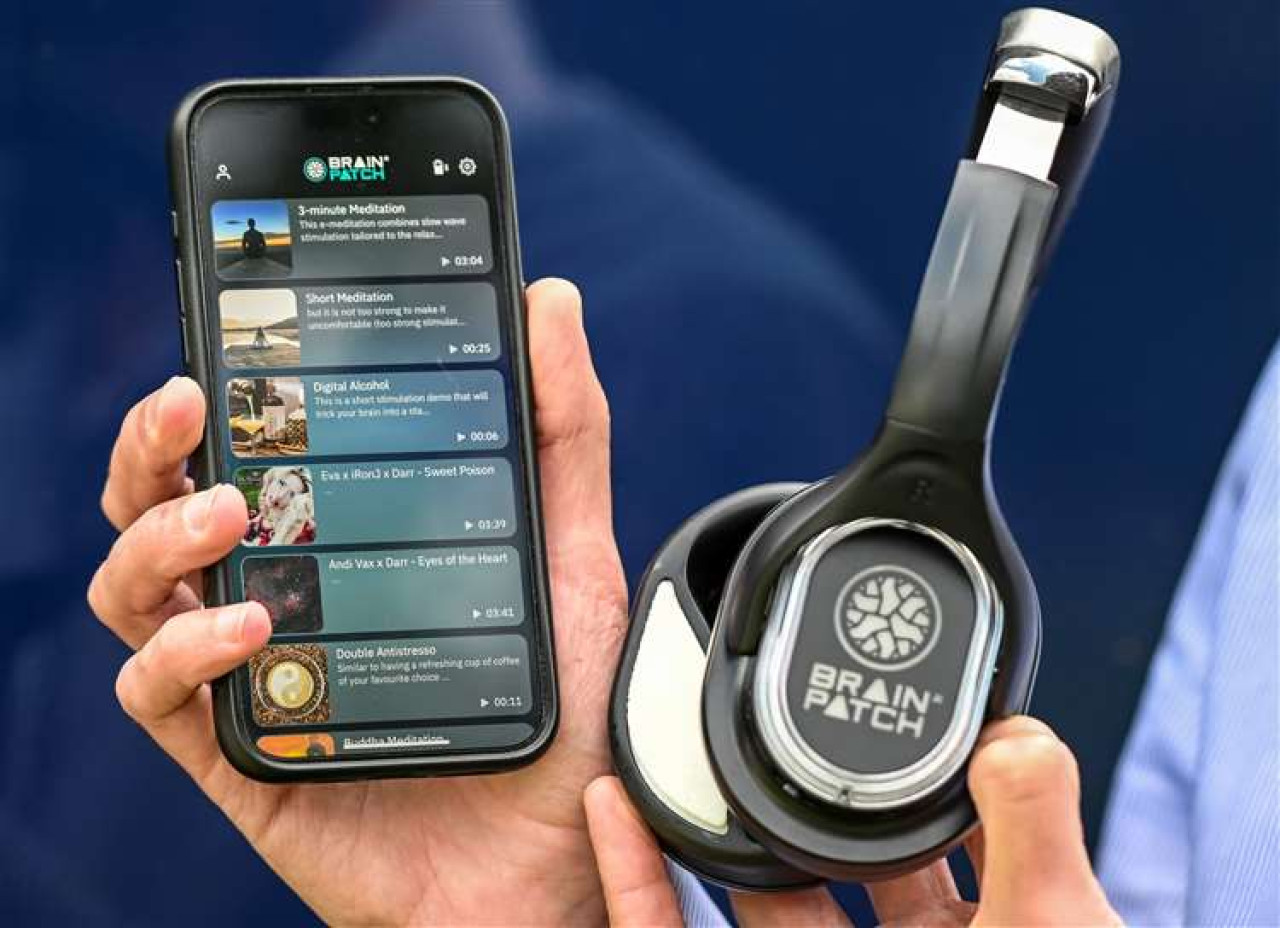Brain Patch AI has just closed a ‘pre-seed plus’ round which secured £250,000,with the company valued at $10.5million.
The valuation reflects the potential of its intellectual property and of the E-meditation device, a headset which uses embedded neuro-technology to achieve a ‘meditation-like state of calmness and stress-relief within seconds, at a push of a button and anywhere in the world’.
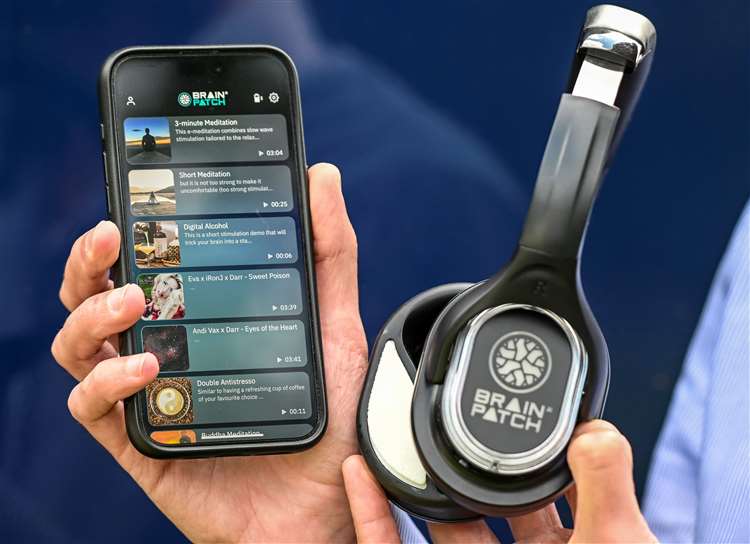
The company was founded in 2018 by Nickolai Vysokov, a neuroscience PhD (Imperial), and entrepreneur/diplomat Dauren Toleukhanov.
Nickolai says: “In 2018 Dauren, who has been a friend for 20 years, approached me; he’d been brainstorming different ideas and at the time I wanted to start working with Neuralink, Elon Musk’s brain-computer interface venture. It was a turning moment when Dauren half-jokingly said ‘we can turn this into a business and buy out Neuralink eventually’.”
Dauren had roles at the Ministry of Trade of Kazakhstan before becoming director of the Sovereign Wealth Fund of Kazakhstan in London.
“So the perfect combination of science and entrepreneurship was born,” says Nickolai, “so with that we set off on the journey of revolutionising computer-brain interfaces. It was somewhat vague as a goal but we have worked hard to develop a platform for non-invasive stimulation and, with a lot of investigation, we’ve found the stimulation locations behind the ears to be very effective.”
E-Meditation is not a medical device. It’s a range of microcurrent stimulation protocols combined with acoustic experiences – depending on your mood and needs – that are implemented in the headset and powered by a mobile application.
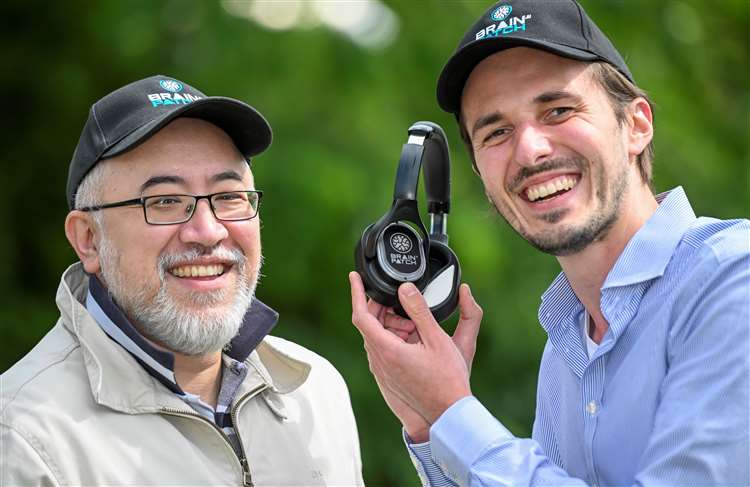
The intrepid duo say that relocating to Cambridge from London – Nickolai is London (King’s and Imperial) educated, Dauren’s five-year directorship was also in the capital – was “a leap of faith and we came to Cambridge and had three meetings”.
One was with Max Bautin of IQ Capital, the second with Christian Bunke of international property patents law firm Basck, and the third with Prof Bazbek Davletov.
“Christian Bunke and Prof Davletov became our first advisors and eventually many of our subsequent advisors became investors,” says Dauren. “As did another Cambridge connection, angel Matthew Cleevely.”
The E-Meditation device looks like a standard headset but there are in-built custom-made earpads containing electrodes.
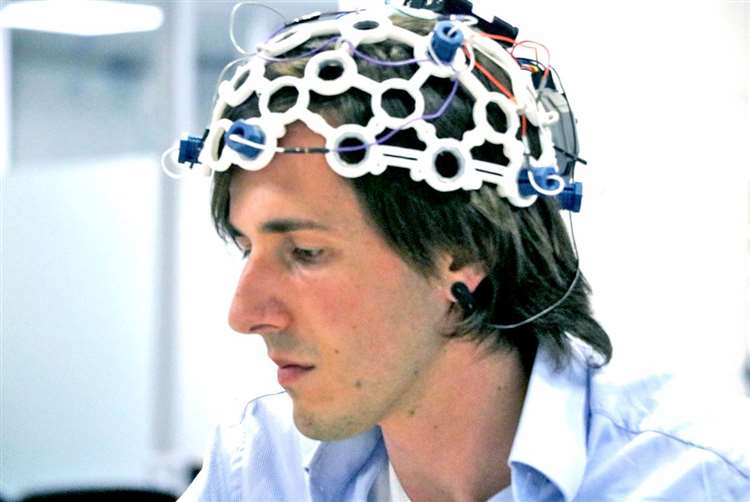
“In our body we have the brain and the rest of the body,” says Nickolai. “The brain is difficult to influence as the skull is a very effective protection, but a highway to the brain is accessible via weak electrical currents which affect various cranial nerves, and also in particular the vagus nerve. Unlike vestibular or optic nerve effects, the effects of vagus nerve stimulation are more subtle, but this stimulation creates a relaxing feeling almost immediately after the start of the stimulation.”
The microcurrent waveforms and sounds fed into the headset are controlled via an app, which provides different protocols for meditations, a ‘digital alcohol’ demo, and other content and music. We can add and tailor the waveforms and the content and manage subscriptions remotely from the server. You can find our app on Apple and android, but you would need to purchase the device to be able to use the simulations.”
“It’s already being sold in the US,” adds Dauren.
Nickolai continues: “We have a US retailer which sells our E-Meditation headsets for $1,000 – it’ll be the equivalent in the UK, plus VAT. We are not a medical device company so we don’t like to make claims. However, much like conventional meditation, the E-Meditation has instantaneous benefits, and benefits over time as people use it more and more, plus it brings out resilience. Also people who are meditating often compare the sensations with our device to a deep meditative state; some trained meditators say they can achieve within one minute what it takes them half an hour to achieve.”
And the digital alcohol option, what’s that about?
“It makes you feel slightly tipsy instantly, and for a few seconds,” replies Dauren. “It also creates a surge of positive emotions. It feels like the aftereffect of having a glass of champagne but only for a few seconds, and you feel lightheaded and slightly elated. If the nervous system is in good order it creates a joyous sensation – and it’s not addictive.
“At some point we realised everyone is stressed all the time – and then Covid came. At that point one of the protocols was deemed useful for regulating the immune system of Covid patients. However, the E-Meditation for relaxation turned out to be very popular and much in need by the nurses and doctors themselves. We had letters from them saying they would like to use this device regularly – so the digital alcohol function would work for academics, students, traders, entrepreneurs, doctors and nurses.”
Dauren added: “Keith [Heppell, the Cambridge Independent’s photographer] tried the headset and really enjoyed the digital alcohol experience.”
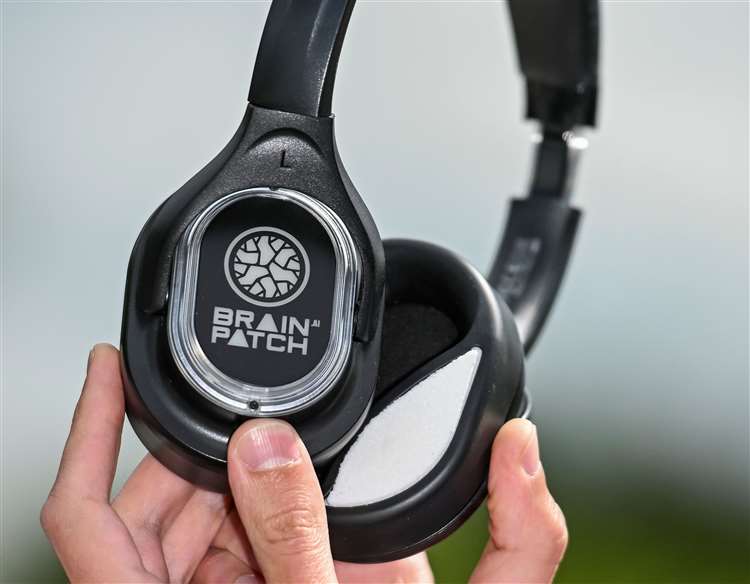
I asked Keith how he got on.
“It was very weird having been teetotal all my life – apart from a very occasional wine or bottle of cider at family occasions – and then being very drunk,” he replied, adding that the alcohol option had three levels. “Level 1 didn’t really do anything. Level 2 was a bit weird, but level 3 I felt like I was going to fall over.”
He added: “It’s a cracking idea because when you’re sitting at home and you need a break, by the time you’ve made coffee it’s taken 15 minutes and this effect is immediate from when it starts to when it ends, and there’s no after-effects.
“I can totally understand how Arm or any big company on the science park would want to have these devices for use by their employees.”
The Brain Patch team consists of Nickolai, Dauren and CTO Yaroslav Gachshenko, plus chief neuroscientist Sergii Tukaiev, firmware engineer Alexander Shiryaev and head of AI Octavio Siller. While the company is incorporated in the UK and also in Dublin, their work includes contracts across the US, Germany, Poland, Kazakhstan and China.
Investors have been involved from the start.
“We’ve had four or five rounds so far,” says Dauren, “from 2018 at inception, then an acceleration round in 2019, then another round in 2020, and another in 2021. They were all very small rounds, and the reason for that is firstly we were quite successful with EU grants and Innovate UK, plus British Academy grants, so we didn’t need money and we were at prototype stage anyway. This round we’ve just closed is pre-seed – plus it’s an extension of the 2021 round, where we raised $500k.
“We were fortunate to raise money when we didn’t need it because in 2022 and 2023 we did need it and it was hard to raise capital for obvious reasons, and now we’ve raised £250,000, we managed to also attract five new investors and angels.
“Neuromotion Ventures, a specialist neurotech fund based in the Netherlands and Germany, was a key strategic investor in 2021. This year Big Sky Capital – a US venture capital firm – joined, and Cambridge business angels including Matthew Cleevely, plus Basck Invest. The valuation – $10.5m – is the key to understanding the interest.”
Dauren added: “The money is being used to start manufacturing in different geographical locations, starting with Berlin, and with Almaty, Kazakhstan – my home city. We’re also manufacturing a lot of components in the UK.”
There’s also been a lot of interest from the music business – early adopters included Warner Music.
“They loved our prototypes,” says Dauren. “They introduced us to some of their artists, including Riopy, the French classical pianist – one protocol was based around one of his piano pieces – plus [Corsican singer] Barbara Colotti, she was recording an album and E-Meditation has helped her manage some stress and trouble with sleep, as well as helping her relax and work in the studio.”
“Our vision,” says Nickolai, “ is that there will be a Brain Patch AI device in every home and every business across the world.”
